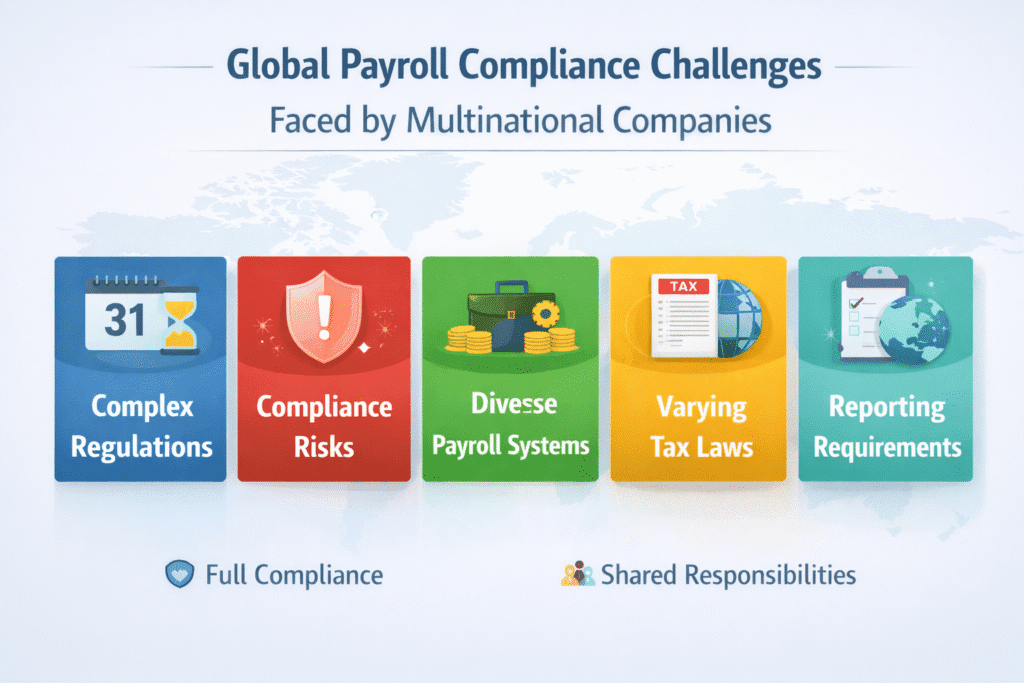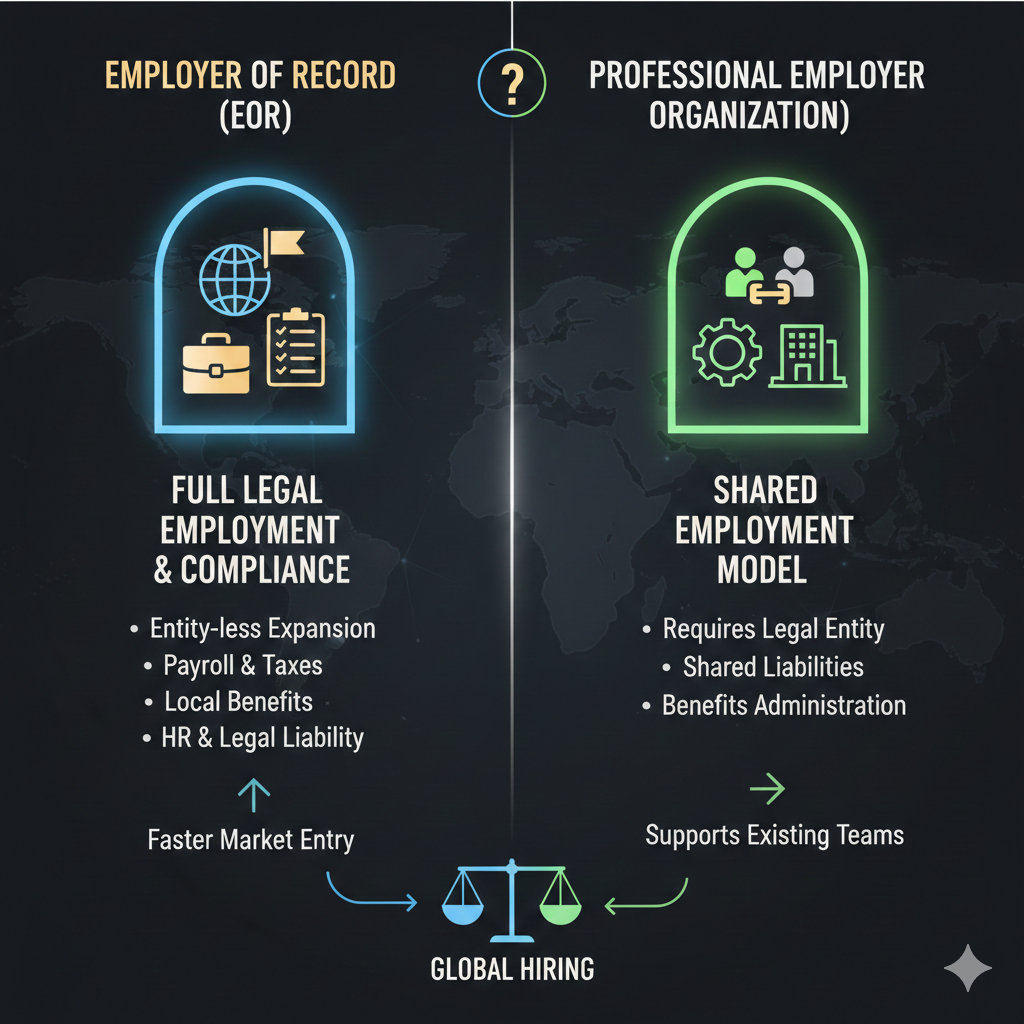Paternity leave is a crucial workplace benefit that allows fathers to take time off from work to bond with their newborn, support their partner, and adjust to parenthood. While maternity leave is widely recognized, paternity leave is gaining importance as societies acknowledge the role of fathers in child-rearing. Different countries have varying laws and mandates regarding paternity leave, ranging from fully paid to unpaid leave, with some nations making it a legal right.
Understanding the rules, legal aspects, and significance of paternity leave can help employees and employers navigate this essential family-friendly policy.
Table of Contents
ToggleWhat is Paternity Leave?
Paternity leave refers to the leave granted to male employees to attend to the needs of their families, especially during the birth or adoption of a child. The paternity leave policy allows fathers to take time off from work to support their spouse and bond with the newborn or adopted child.
The specific details of paternity leave, including the duration and benefits, can vary between companies and may also be subject to changes in labor laws.
It’s important to check with the company’s human resources department or refer to the employee handbook for the most accurate and up-to-date information regarding paternity leave policies.
What is the Meaning of Paternal Leave?
Paternal leave refers to the time off granted to a father after the birth or adoption of a child. It allows fathers to bond with their child, support their partner, and take on caregiving responsibilities. Paternal leave can be paid or unpaid, depending on the country’s labor laws and company policies.
It is often used interchangeably with paternity leave, though some organizations may distinguish between the two, with paternal leave covering a broader scope of family-related responsibilities.
Why is Paternity Leave Important?
Paternity leave is considered important for several reasons, as it brings benefits to both the employees and the broader society. Here are some key reasons why paternity leave is considered important:
1. Bonding with the Child:
Paternity leave allows fathers to spend quality time bonding with their newborn or adopted child during the crucial early weeks. This bonding contributes to the emotional well-being of both the father and the child.
2. Support for Spouse:
Paternity leave provides fathers with the opportunity to support their spouses during the postpartum period or during the adoption process. This support is valuable for the physical and emotional well-being of the mother.
3. Equal Parenting Roles:
Offering paternity leave promotes the idea of shared parenting responsibilities. It encourages fathers to take an active role in childcare, contributing to a more equitable distribution of parenting responsibilities between mothers and fathers.
4. Family Well-being:
Paternity leave supports overall family well-being by ensuring that fathers are actively involved in the care and upbringing of their children. This can lead to stronger family bonds and a healthier family environment.
5. Work-Life Balance:
Paternity leave helps fathers achieve a better work-life balance. It acknowledges the importance of family life and allows fathers to manage their professional and personal responsibilities more effectively.
6. Employee Satisfaction and Retention:
Offering paternity leave enhances employee satisfaction and can contribute to higher employee retention rates. Employees who feel supported in their family life are likely to be more engaged and loyal to their employers.
7. Gender Equality:
Paternity leave plays a role in promoting gender equality in the workplace and society. It challenges traditional gender roles and expectations, recognizing that both parents should have the opportunity to be actively involved in childcare.
8. Child Development:
Early parental involvement, including that of fathers, has been associated with positive outcomes in child development. Paternity leave allows fathers to actively participate in the early stages of their child’s growth and development.
9. Mental Health:
Paternity leave can positively impact the mental health of fathers by reducing stress and allowing them to focus on their family responsibilities without the pressure of work obligations.
10. Social and Cultural Shifts:
By endorsing paternity leave, societies and workplaces contribute to broader social and cultural shifts, recognizing the evolving dynamics of modern families and the importance of involved fatherhood.
In summary, paternity leave is important as it supports family well-being, encourages shared parenting, enhances work-life balance, and contributes to a more inclusive and equitable workplace and society.

Paternity Leave Policies Around the World(2025 Update)
Paternity leave policies vary dramatically across countries, reflecting cultural values, labor laws, and societal priorities. Below is a detailed breakdown of key regions and countries, including recent updates and trends:
1. Nordic Countries: The Gold Standard
Sweden
Leave Entitlement: 480 days of shared parental leave per child, with 90 days reserved exclusively for each parent (“use-it-or-lose-it”).
Pay: 80% of salary for 390 days, capped at ~$1,200/week.
Cultural Context: 90% of Swedish fathers take leave, driven by strong gender equality norms.
Norway
Daddy Quota: 15 weeks reserved for fathers at 100% pay (up to ~$8,500/month).
Trend: Fathers now take 30% of total parental leave, up from 4% in 1993.
Key Takeaway: Nordic policies incentivize shared parenting, reducing the “motherhood penalty” in workplaces.
2. United States: A Patchwork System
Federal Law: No paid leave. The FMLA grants 12 weeks unpaid leave (applies to 60% of workers).
State-Level Policies:
California: 8 weeks paid at 60–70% salary.
New York: 12 weeks paid at 67% salary.
Corporate Trends: Tech giants like Netflix (52 weeks paid) and Microsoft (20 weeks) set high standards.
Challenges: Only 27% of private-sector workers have access to paid leave.
3. United Kingdom: Statutory Support
Statutory Paternity Leave: 2 weeks paid at £184.03/week (or 90% of earnings if lower).
Shared Parental Leave: Parents can split 50 weeks of leave, but only 1–2% of fathers use it due to low pay rates.
2024 Reform: Proposals to double paid paternity leave to 4 weeks.
4. Japan: Breaking Cultural Barriers
Policy: 12 months of parental leave at 50–80% pay, but only 7% of fathers take leave (2023 data).
“Papa Month” Initiative: Offers bonuses to fathers who take ≥1 month off.
Cultural Hurdles: Workplace stigma and “overwork” culture deter uptake.
5. Emerging Economies: Progress & Gaps
India
Government Employees: 15 days paid leave.
Private Sector: No legal mandate, but firms like TATA and Infosys offer 2–4 weeks.
South Africa
10 days unpaid leave (Children’s Act 2023).
Brazil
5–20 days paid, depending on employer size.
UAE
5 days paid leave for private-sector workers (2022 reform).
Global Paternity Leave Comparison Table
| Country | Paid Leave Duration | Pay Rate (%) | Reserved for Fathers? | Key Law/Policy |
|---|---|---|---|---|
| Sweden | 90 days | 80% | Yes | Parental Leave Act |
| USA | 0 (federal) | – | No | FMLA |
| Japan | 12 months | 50–80% | No | Childcare Leave Law |
| Germany | 2 months | 67% | Yes | Parental Allowance Act |
| India | 15 days | 100% | No | DOPT Guidelines |
Data Driven Insights and Trends on paternity Leaves
Understanding the global impact of paternity leave requires digging into statistics, research, and evolving trends. Below, we break down key data points and shifts shaping paternity leave in 2024:
1. Statistics: The Global Landscape
Uptake Rates:
Sweden: 90% of eligible fathers take paternity leave, driven by generous pay and cultural norms.
Japan: Only 14.4% of fathers took leave in 2023, despite 12 months of paid eligibility, due to workplace stigma.
USA: Just 25% of private-sector workers have access to paid paternity leave (Bureau of Labor Statistics, 2023).
India: Only government employees are legally entitled to 15 days of leave; private-sector access remains inconsistent.
Child Development:
OECD studies show children with fathers who took ≥2 months of leave scored 12% higher in cognitive tests by age 5.
Fathers taking leave reduce maternal postpartum depression rates by 26% (International Labour Organization, 2023).
2. Post-Pandemic Trends
Remote Work Flexibility:
40% of remote-first companies now offer location-agnostic leave policies (e.g., GitLab, Buffer).
Hybrid workers negotiate “phased returns” (e.g., part-time remote work post-leave).
Mental Health Focus:
68% of fathers in a 2024 Deloitte survey cited paternity leave as critical for reducing burnout and improving family mental health.
3. LGBTQ+ Inclusivity
Non-Biological Parents:
Canada, New Zealand, and Spain grant paternity leave to non-birthing parents in same-sex couples.
Companies like Salesforce and Spotify offer gender-neutral parental leave (e.g., 26 weeks for all parents).
Surrogacy & Adoption:
UK’s Shared Parental Leave now covers surrogacy, while Australia’s “Dad and Partner Pay” includes adoptive parents.
4. Gig Economy Challenges
Freelancers & Contract Workers:
78% of gig workers lack access to statutory paternity leave (ILO, 2024).
Platforms like Uber and Upwork rarely offer paid leave, though some (e.g., Fiverr) provide stipends for new parents.
Solutions:
Freelancers in the EU can access portable benefits via the 2023 Platform Work Directive.
US-based gig workers use apps like Juno to crowdfund leave.
5. Observations
Policy Gaps: Nations with high uptake (e.g., Sweden) combine paid leave with cultural support, while others (e.g., Japan) lag due to stigma.
Future Focus: Remote work and LGBTQ+ inclusivity are reshaping leave policies, but gig workers remain underserved.
Action Step: Advocate for laws that include non-traditional families and remote/gig workers.

Cultural Attitudes & Challenges
Stigma: In Japan and South Korea, men face career penalties for taking leave.
Progress: Spain’s 2023 equal parental leave law (16 weeks per parent) aims to dismantle gender roles.
LGBTQ+ Inclusion: Canada and New Zealand allow paternity leave for non-biological parents in same-sex couples.
How to Advocate for Better Policies
For Employees:
Use templates to negotiate leave (link to your “Paternity Leave Application” section).
Cite OECD data showing leave reduces maternal burnout by 40%.
For Employers:
Follow Salesforce’s model: 26 weeks paid leave + $10k childcare stipend.
Promote leave uptake to boost retention (e.g., Deloitte saw 30% lower attrition).
Future Trends (2025-2026)
Remote Work Impact: Global companies like GitLab offer location-agnostic leave policies.
AI & Parental Leave: Tools like ChatGPT help draft leave requests (include your template).
Climate Crisis: Activists demand parental leave for climate-related family emergencies.

Rules of Paternity Leave in India| Paternity Leave Policy/Law in India
According to DOPT ( Department of Personnel & Training by Govt. Of India) rules of paternity leave in India as follows:
(1) A male member of the Service (including a
probationer) with less than two surviving children, may be granted paternity leave by an authority competent to grant leave for a period of 15 days, during the confinement of his wife for childbirth, i.e. up to 15 days before, or up to six months from the date of delivery of the child.
(2) During such period of 15 days, he shall be paid leave salary equal to the pay drawn immediately before proceeding on leave.
(3) The paternity leave may be combined with leave of any other kind.
(4) The paternity leave shall not be debited against the leave account.
(5) If paternity leave is not availed of within the period specified , such leave shall be treated as lapsed.
Note:- The paternity leave shall not normally be refused under any circumstances.
How to Write a Paternity Leave Application? | Paternity Leave Application For Wife Delivery
Writing a paternity leave application involves clearly stating your intention to take time off from work to care for and bond with your newborn child. Here is a general template and guidelines you can follow to write paternity leave letter:
Dear [Recipient’s Name],
I am writing to formally request paternity leave from [start date] to [end date] in accordance with the company’s leave policy. This leave is sought to allow me to be present for the birth of my child and to provide support to my family during the initial weeks.
Details of the leave request:
- Start Date: [Enter the date you plan to start your paternity leave]
- End Date: [Enter the date you plan to return to work]
- Expected Date of Birth: [If known, provide the expected date of birth]
- Number of Leave Days Requested: [Specify the number of days you are requesting]
I have ensured that all my pending work is up to date, and I am committed to ensuring a smooth transition during my absence. I will be available to delegate my responsibilities and assist in any way possible to minimize the impact of my leave on the team.
I appreciate your understanding and support in this matter. If there are any additional steps or paperwork required for processing this request, please let me know at your earliest convenience.
Thank you for considering my request. I look forward to returning to work on [return date] and resuming my responsibilities.
Sincerely,
[Your Full Name]
[Your Job Title]
[Your Contact Information]
Remember to adapt the template based on your specific situation and company policies. It’s advisable to submit your paternity leave application well in advance to allow your employer sufficient time for planning and adjustments.
Key Takeaways
Nordic nations lead in gender-equal leave; Japan struggles with cultural barriers.
The U.S. lags federally but has progressive state/corporate policies.
Emerging economies are slowly expanding access but face funding challenges.
Related Article: Loss of Pay leaves and Holidays
FAQs on Paternity Leave
Is it Compulsory to Give Paternity Leave in India for Private Companies? | Is Paternity Leave Mandatory in India?
While there is no legal obligation for private sector organizations in India to provide paternity leave to working fathers, an increasing number of companies nowadays recognize the importance of this and are offering 15 days of paternity leave.
How Many Days Paternity Leave in India?
Paternity leave days in India is for 15 days
Do We Get Salary in Paternity Leave?
Whether you receive a salary during paternity leave depends on the country and the employer’s policies.
- USA: There is no federal law requiring paid paternity leave. However, companies may offer paid leave, and employees can use unpaid leave through the Family and Medical Leave Act (FMLA).
- UK: Statutory Paternity Pay is available, providing up to 2 weeks of paid leave at a lower fixed rate.
- Australia, Canada, and India: Policies vary, with some offering paid leave depending on government schemes and company policies.




